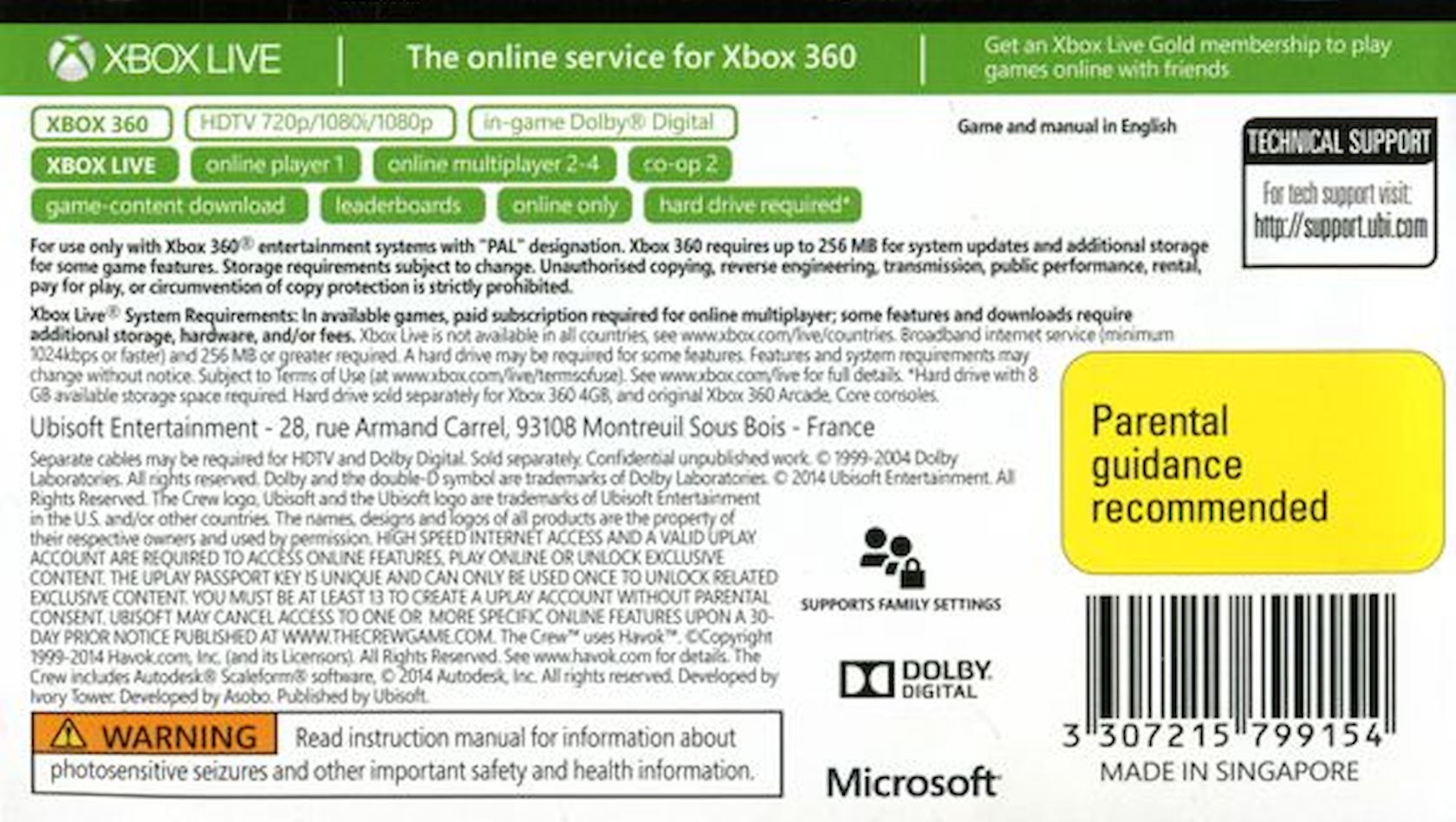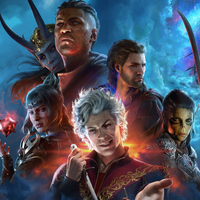Ubisoft's defense against The Crew lawsuit doubles down on a point we've heard many times before: You don't actually own your games
Ubisoft claims consumers were given "clear and conspicuous" notice that they were only buying a "limited license" to access the game.

Ubisoft felt bad enough about killing The Crew in 2024 that it promised to never, ever do it again—in The Crew 2 and The Crew Motorfest, at least. But it doesn't feel so bad that it's willing to admit it actually did anything wrong: In response to a proposed class action lawsuit over the shutdown filed last year, Ubisoft said the plaintiffs in the case knew—or should have known—that they were only buying "limited licenses" to access the game.
Ubisoft's response to the lawsuit, filed in February and available via Polygon, makes multiple claims as to why the suit should be dismissed, including that relevant statutes of limitation have expired, that no "cognizable injury" was suffered, that there's no evidence the plaintiffs wouldn't have bought the game anyway, and as already mentioned, that the plaintiffs knew what they were getting into because of "the explicit warnings on The Crew's packaging that plaintiffs were obtaining a limited license to access the game."
"The Xbox and PlayStation packaging contain a clear and conspicuous notice—in all capital letters—that 'UBISOFT MAY CANCEL ACCESS TO ONE OR MORE SPECIFIC ONLINE FEATURES UPON A 30-DAY PRIOR NOTICE'," the filing states. "The PlayStation packaging's list of game features includes 'ONLINE PLAY (REQUIRED,' and again warns on the front of the package: 'ONLINE CONNECTION REQUIRED.' The Xbox package contains a similar warning that The Crew 'REQUIRES INTERNET.'
"In other words, both packages warn (1) that Ubisoft may terminate online connectivity upon prior 30-day notice and (2) that playing The Crew requires online connectivity."
A trip around to MobyGames, which has scans of The Crew packaging, confirms that these messages are indeed there. Are they "clear and conspicuous?"

I am not a lawyer but my gut feeling here is no, that is neither clear nor conspicuous, and while those of us who are reasonably immersed into gaming might know the score—we don't actually own our games—there are plenty of people who do not, and more to the point would likely not even be aware that there's fine print to read in the first place. It's a videogame, right?
The whole "clear and conspicuous" thing has come up in gaming before, maybe most famously amidst the fallout of the CS:GO Lotto case, which resulted in the FTC issuing an order requiring influencers to "clearly and conspicuously disclose" any connections to products or services they're promoting.
The biggest gaming news, reviews and hardware deals
Keep up to date with the most important stories and the best deals, as picked by the PC Gamer team.
But another, more recent case may actually surpass it in prominence, and yes, it's The Crew: In response to the game's shutdown and the outrage that followed, the state of California proposed a new law requiring game sellers to provide "clear and conspicuous" warnings to consumers that the games they purchase could be taken away at any time.
Not long after that, Steam added a new disclaimer to its purchase page warning that "a purchase of a digital product grants a license for the product on Steam." (GOG, as is its way, took the opportunity to post a disclaimer of its own, reminding one and all that its games come with offline installers "which cannot be taken away from you." Gotta respect the hustle.)
Ubisoft's defense doesn't turn entirely on that point, but it is a particularly interesting one because the concept of "ownership" is growing increasingly hazy in this digital age. A Ubisoft executive took heat in 2024 for saying gamers should get comfortable with the idea of not owning their games, but he wasn't wrong. If anything, the ship has sailed and many of us just didn't notice. But could that ship sail back into port if a judge someday decides temporary ownership is a bunch of malarkey?
Anyway, back to the lawsuit: Ubisoft also claims the plaintiffs don't have standing to bring the case because ultimately, they got what they paid for.
"After making their purchases, plaintiffs enjoyed access to The Crew for years before Ubisoft decided in late 2023 to retire and shut down the servers of the 10-year-old videogame," the filing states. "Plaintiffs received the benefit of the bargain and cannot complain now that they were deceived simply because Ubisoft did not then create an offline version of the discontinued videogame."
To bolster the point, Ubisoft's lawyers cite another case, Mai v. Supercell Oy, in which plaintiffs claimed harm caused by the game's loot boxes, which amounted to illegal gambling. The court concluded in that case that "plaintiffs lacked standing because they did 'not allege a deficiency in the loot boxes or virtual currency they received in exchange for their real-world currency' ... in other words, the plaintiffs failed to establish standing because their complaint made clear that 'in fact, they received what they paid for'."
The Polygon report says the plaintiffs in the case filed an amended complaint in March addressing the issues raised by Ubisoft, adding another allegation arguing that The Crew's virtual currency was equivalent to gift certificates, which aren't allowed to expire under California law—and thus when Ubisoft ended the game and rendered the in-game currency useless, it broke the law. It also includes images of The Crew's packaging showing that the activation code for The Crew doesn't expire until 2099, which it claims implies that the game would remain playable until at least that year. The case is ongoing.
2025 games: This year's upcoming releases
Best PC games: Our all-time favorites
Free PC games: Freebie fest
Best FPS games: Finest gunplay
Best RPGs: Grand adventures
Best co-op games: Better together

Andy has been gaming on PCs from the very beginning, starting as a youngster with text adventures and primitive action games on a cassette-based TRS80. From there he graduated to the glory days of Sierra Online adventures and Microprose sims, ran a local BBS, learned how to build PCs, and developed a longstanding love of RPGs, immersive sims, and shooters. He began writing videogame news in 2007 for The Escapist and somehow managed to avoid getting fired until 2014, when he joined the storied ranks of PC Gamer. He covers all aspects of the industry, from new game announcements and patch notes to legal disputes, Twitch beefs, esports, and Henry Cavill. Lots of Henry Cavill.
You must confirm your public display name before commenting
Please logout and then login again, you will then be prompted to enter your display name.


